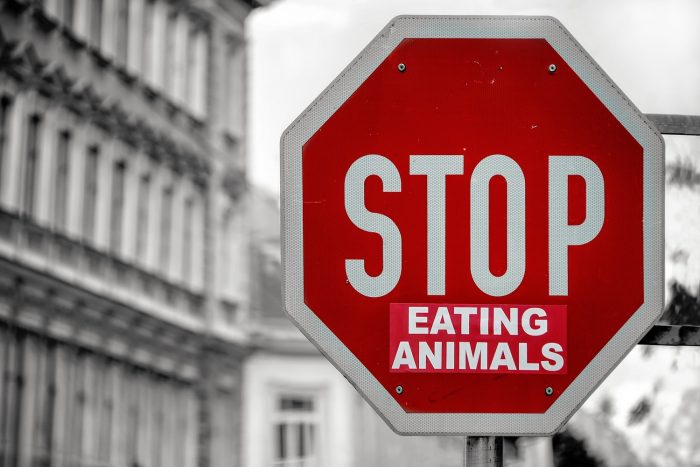*Editor’s Note: Elephant Journal articles represent the personal views of the authors, and can not possibly reflect Elephant Journal as a whole. Disagree with an Op-Ed or opinion? We’re happy to share your experience here.
~
The number of confirmed coronavirus cases in the United States totals two. Both patients remain quarantined in stable condition.
The coronavirus is said to have originated in Wuhan, China—a bustling metropolis home to 11 million people.
There, airborne travel halted on what is typically one of the busiest travel days of the year, Lunar New Year, with officials concluding that a seafood and wildlife meat market is to blame for the initial spread of infection.
So what is coronavirus, anyway? And why does it sound like a bad hangover?
The name “corona” originates from the appearance of the virus under a photon microscope. Coronavirus 2019, or 2019-nCoV, is currently classified as a viral pathogen with no known vaccination or cure. The virus is thought to have found its first host in snakes.
Treatment involves queuing up helplessly at hospitals already overrun with agitated and feverous people, everyone desperate for answers in what appears to be the first nationwide pandemic to sweep the 2020s.
Infection with 2019-nCoV mimics SARS (severe acute respiratory syndrome), which is why so many people suffering from the virus have complained of pneumonia-like symptoms in addition to headache, fever, and muscle weakness. What sets this strain of coronavirus apart from SARS are the confirmed cases involving human-to-human transmission—typically, with SARS, viral infections of this classification spread from animal-to-human contact
Why meat?
Perhaps the most insidious cleanup from all of this will involve a closer examination of humanity’s callous treatment of animal populations reigned-in for consumption:
Our obsession with cooking flesh causes irreparable harm to thousands of lives and lungs.
I, for one, am not okay with going down with the ship because somebody thought it was a good idea to keep animals in cages, force-feed them hormones, and hook them up with the latest antibacterial drugs to keep their meat from going rank.
Even if we ourselves don’t eat meat, we are still unfortunately subject to the horrors that most of the rest of the world we live in, well, does.
We must refuse to accept deforestation-inducing factorized versions of a food supply to be the permanent way forward.
I am unable to justify why it is okay to continue behaving as “we” always have, when the face of our disastrous decisions to combine entire swaths of soil into single-crop outputs every other year leaves us scratching our heads with wonder when there is suddenly a drastic change in the diversification of minerals in the groundwater, translating up the food chain to cause indecipherable diseases in plant and animal populations.
Are we so determined to steal and pillage whatever resources we can—thereby fueling an endless battle against havoc-wreaking viral pandemics—or will we release the carbon henchmen in the face of a genuine war to undo our own man-made causes of biological, ecological, ethological, and “natural” disasters?
The answer has to be “no.” Not if we truly stand against greed and the question of subsistence in a world that damns the veggie-loving messenger while lauding the meat-mongering status quo.
But what if we all were facing an untreatable viral infection? As our lungs swell up and we feel the final breaths of our lives entering our fat-saturated veins, would we blame the men selling the skins or the system that put him there?
If we are able to see through the collective disillusionment that is “as they go, I go,” we can begin to build a better and brighter future—not just inside a supermarket, not only for fellow humans on this kind Earth, but for our fellow animals and ecosystems who deserve better than this, too.
There is a new way, one that includes the peaceful release of abused animals held captive in filthy cages, fighting for life standing in their own feces, chained to a small plot of land—land that used to be their outdoor paradise—forced into being bought, sawed-open, and sold for a few moments of desirous fork-twirling with a meaty bolognese.
A simple vote with our hard-earned dollar will also suffice, for now, even as we partake in an age-old practice to signal the end of our acquiescence.
In a pandemic-free future, where we have miraculously accomplished to rally together in support for plant-based sustainable farming to feed all of us, we will be served with both the health of our lungs and our shared desire of shopping disease-free at open-air markets.
On the heels of discussions at the Davos World Economic forum, and with respect for all sentient beings, may this serve as the final warning to wake up and start devising new ideas that prevent future failures. We cannot afford further damage to an already fragile and under protected wildlife population, or we all will flounder.
The best time to go vegan was 30 years ago, the second best time is now.











Read 0 comments and reply